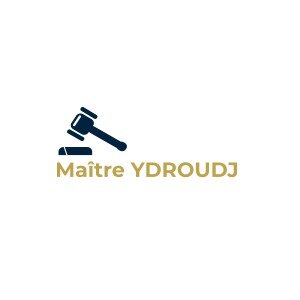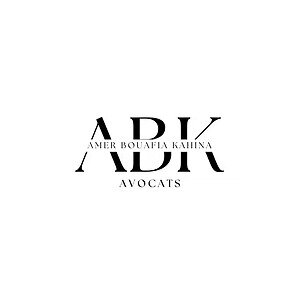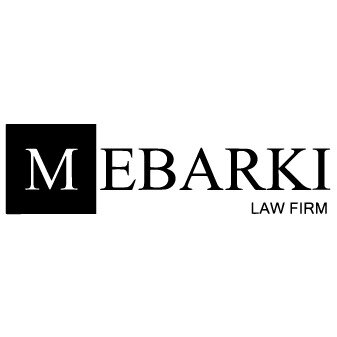Best International Trade Law Lawyers in Algeria
Share your needs with us, get contacted by law firms.
Free. Takes 2 min.
Or refine your search by selecting a city:
List of the best lawyers in Algeria
About International Trade Law in Algeria
International Trade Law in Algeria is a complex and evolving area of law that governs the trading relationships between Algeria and other countries. This legal field encompasses a wide range of activities, including the import and export of goods and services, customs regulations, trade agreements, and dispute resolution. Algeria, being a member of the World Trade Organization (WTO), adheres to several international standards and practices while also implementing its national trade policies to protect and promote its economic interests. Understanding the blend of international norms and domestic regulations is crucial for businesses and individuals engaged in international trade with Algeria.
Why You May Need a Lawyer
There are numerous situations in which individuals or businesses in Algeria may require legal assistance in International Trade Law:
- Compliance with local and international regulations concerning the import and export of goods.
- Negotiating and drafting international trade agreements and contracts.
- Resolving disputes arising from international trade transactions.
- Navigating Algeria's customs and tariff laws.
- Understanding changes in trade policies and their implications on business practices.
- Licensing and regulatory compliance for trading activities.
- Managing risks associated with international business operations.
Local Laws Overview
Several key aspects of Algeria's laws are particularly relevant to International Trade Law:
- Customs Regulations: Algeria enforces strict customs procedures that must be followed by traders to ensure the smooth import and export of goods.
- Trade Agreements: Algeria is a signatory to various bilateral and multilateral trade agreements, impacting trade terms and conditions.
- Investment Codes: These codes regulate foreign investments, stipulating conditions under which foreign entities can operate in Algeria.
- Intellectual Property Rights: Protection of intellectual property, including trademarks and patents, is crucial for international trade operations.
- Consumer Protection Laws: Regulations are in place to protect consumers, which can affect trading practices and agreements.
- Export Control Legislation: Controls are in place for certain goods to ensure compliance with international obligations and national security interests.
Frequently Asked Questions
1. What are the main regulatory bodies governing international trade in Algeria?
The main regulatory bodies include the Ministry of Trade, Algerian Customs, and various sector-specific agencies.
2. Is Algeria part of any international trade organizations?
Yes, Algeria is a member of the World Trade Organization (WTO) and also has agreements with several international partners.
3. What documents are required to import goods into Algeria?
Typically, documentation includes the commercial invoice, packing list, certificate of origin, and any relevant permits or licenses.
4. How are disputes resolved in international trade in Algeria?
Disputes can be resolved through negotiation, arbitration, or litigation, depending on the terms of the trade agreement.
5. What are the common tariffs applied to imported goods in Algeria?
Tariffs vary widely depending on the type of goods and their country of origin. It's advisable to consult the Algerian Customs tariff schedule for specifics.
6. Can foreigners own businesses involved in international trade in Algeria?
Foreigners can own businesses in Algeria, but there might be restrictions and conditions, particularly regarding joint ventures with local partners.
7. How can one ensure compliance with local trade laws?
Engaging legal experts well-versed in Algerian trade law is crucial for understanding and complying with local regulations.
8. Are there any export incentives for local businesses in Algeria?
Yes, the Algerian government offers various incentives for local businesses to promote exports, including tax exemptions and subsidies.
9. How often do trade laws change in Algeria?
Trade laws can change with new regulations or amendments as deemed necessary by the government in response to economic and global developments.
10. What should businesses consider when entering a trade agreement with Algerian partners?
Businesses should carefully review contractual terms, dispute resolution mechanisms, and compliance obligations with legal counsel.
Additional Resources
Here are some resources that can be beneficial for those seeking more information on International Trade Law in Algeria:
- The Ministry of Trade's official publications and website for guidelines and updates.
- Algerian Customs website for information on tariffs and import-export regulations.
- The Algerian Chamber of Commerce and Industry for networking and support services.
- Professional organizations such as the Algerian Bar Association for legal referrals and advice.
Next Steps
If you need legal assistance in International Trade Law, consider the following steps:
- Consult with a legal expert who specializes in international trade to assess your specific needs and situations.
- Gather all necessary documents and information related to your trade activities or issues.
- Reach out to relevant governmental bodies for guidance on procedural requirements.
- Consider joining trade forums or professional networks to gain insights and support from industry peers.
- Stay informed about updates in trade policies and legal requirements by subscribing to governmental and professional newsletters.
Lawzana helps you find the best lawyers and law firms in Algeria through a curated and pre-screened list of qualified legal professionals. Our platform offers rankings and detailed profiles of attorneys and law firms, allowing you to compare based on practice areas, including International Trade Law, experience, and client feedback.
Each profile includes a description of the firm's areas of practice, client reviews, team members and partners, year of establishment, spoken languages, office locations, contact information, social media presence, and any published articles or resources. Most firms on our platform speak English and are experienced in both local and international legal matters.
Get a quote from top-rated law firms in Algeria — quickly, securely, and without unnecessary hassle.
Disclaimer:
The information provided on this page is for general informational purposes only and does not constitute legal advice. While we strive to ensure the accuracy and relevance of the content, legal information may change over time, and interpretations of the law can vary. You should always consult with a qualified legal professional for advice specific to your situation.
We disclaim all liability for actions taken or not taken based on the content of this page. If you believe any information is incorrect or outdated, please contact us, and we will review and update it where appropriate.
Browse international trade law law firms by city in Algeria
Refine your search by selecting a city.












